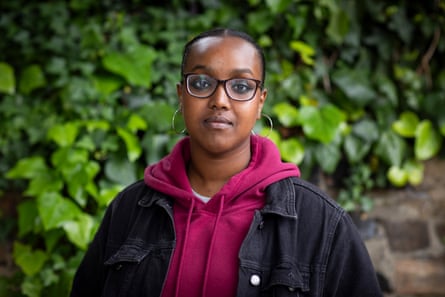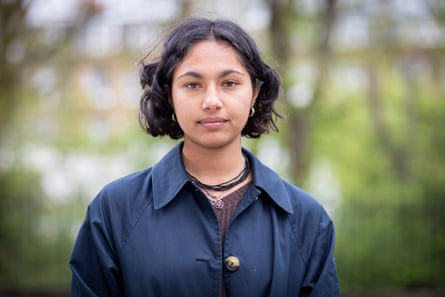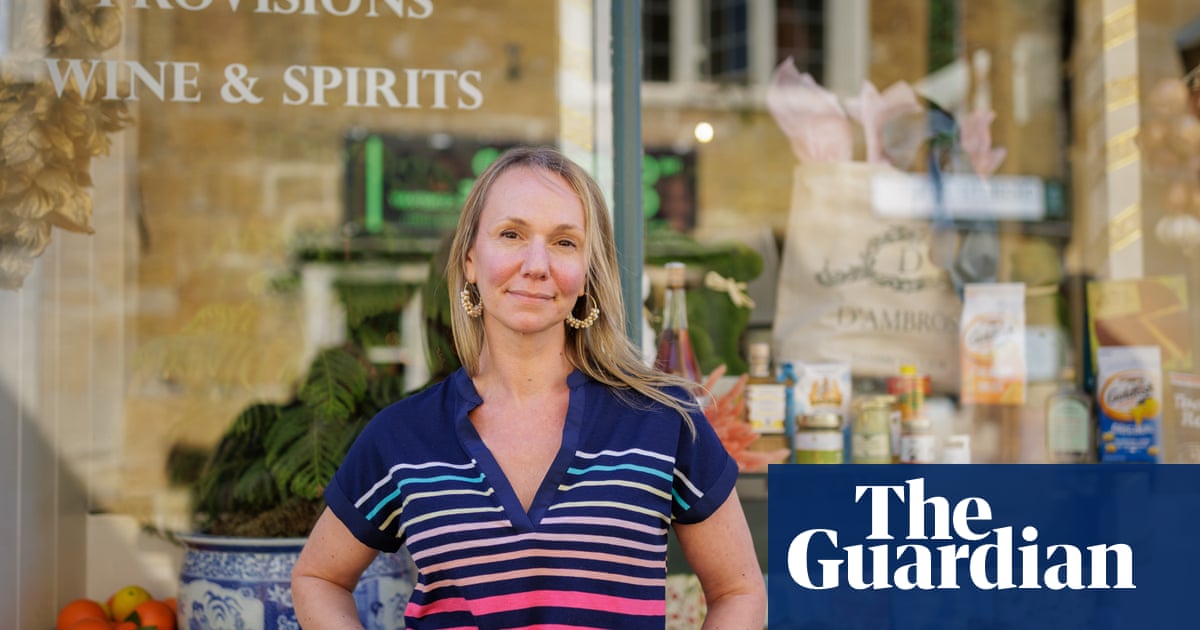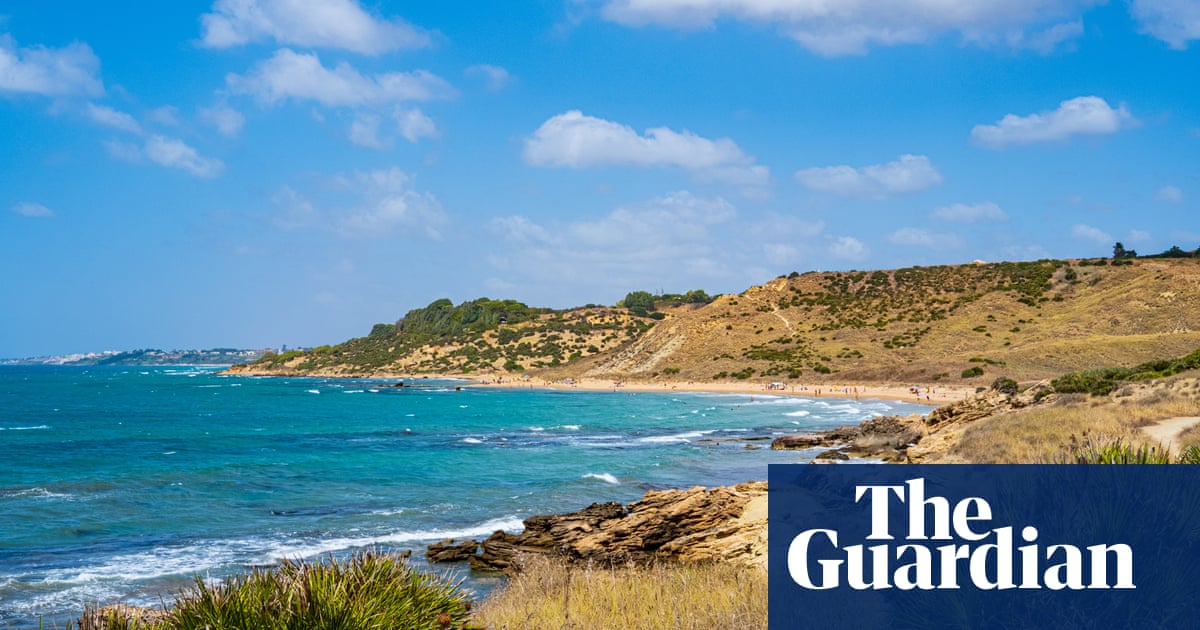When six young women gathered in central London to discuss the climate crisis and the war in Gaza, the setting could not have been more appropriate. The building in which they sat was a Quaker meeting house, the home of a movement whose centuries-long history is rooted in protest and a commitment to social justice. On the table were cups of jasmine tea, ginger biscuits and a selection of vegan cheese straws.
But the events that brought this apparently convivial gathering to an abrupt end have sparked protests of a different kind and raised questions about how justice is administered by the UK’s largest and most embattled police force.
Talk among the youth activists that evening had turned to the 1963 Children’s March in Birmingham, Alabama, when a flash of blue light interrupted the chatter. Seconds later up to 30 Metropolitan police officers, some armed with stun guns, smashed down the door of the Grade II-listed building and arrested the young women inside.

One of the six, 18-year-old Zahra Ali, was held in a cell for 17 hours. Another was “rear stacked”, hands cuffed behind her back and held against the wall in what she described as an hour-long ordeal. Phones were seized and laptops bagged as evidence.
The raid, described as “intelligence-led”, was targeting the protest group Youth Demand. The members in attendance were arrested on suspicion of conspiracy to cause a public nuisance. Five remain under investigation.
Six weeks on, the operation has drawn criticism from religious groups, politicians and activists. The need for such a severe course of action, meted out in a place of worship, remains a concern, not least for those who were targeted.
“I was the last one to be taken into custody,” said Ali, the youngest of the six women. “I got to the station about 10pm-ish and I had to wait two hours to be booked in. I was taken to a freezing cold cell for hours. I wasn’t allowed a personal call. I didn’t get to speak to my solicitor until he came in person.
“We saw the blue lights a second before they marched in. We were just a bunch of young people talking about our government, about protesting, and they arrested us for that.
“I think had they rung the bell we would have let them in, obviously … They didn’t have to raid us. It’s six young women in a room, in a place that we hired, that we publicly advertised, and they could have just sat in and listened to us. I don’t really see any conspiracy in that.”

That accusation of conspiracy is one that particularly jars with the young women. A life-drawing class and therapy session had been taking place in the same building; the meeting hardly took place in secret, the women say.
“We post on Instagram, we have posters and leaflets. It’s a weekly welcome talk and usually, if they had good intelligence, they would know that it’s never that busy, never enough for it to [warrant] 30 police officers.”
Youth Demand, which includes young veterans of the Just Stop Oil movement, had posted online it was planning to “shut down London” on a daily basis in April. The group staged a series of protests last month, including during the London Marathon when two activists were arrested after red powder paint was thrown on Tower Bridge.
The group, which is calling for a trade embargo on Israel, had previously made headlines for staging a “dirty protest” by appearing to defecate at Rishi Sunak’s £2m manor house in Yorkshire, and for spray-painting Labour’s headquarters red.
For Lia-Anjali Lazarus, a 20-year-old politics and languages student at UCL, the raid was “a traumatic experience”. “The raid and arrest felt extremely violating. It left me feeling paranoid and jumpy. It’s hard not to feel like a criminal when you’re blatantly treated as one,” she said.
Police confiscated her phone, laptop, her diary, Oyster card and French grammar book. “I said it’s my French grammar book and the officer said: ‘Well how do I know that. I don’t speak French.’”
Lazarus said the police’s outrageous response felt like “thought policing”, but she wasn’t too surprised considering the arrests of Just Stop Oil activists at a community centre soup night last year.
Paul Parker, the recording clerk for Quakers in Britain, said no one in living memory had been arrested at a Quaker meeting house. Quakers is a nickname for members of the Religious Society of Friends.

Mal Woolford, an elder of the Westminster Quaker Meeting who was present at the time, said the gathering had looked like an innocuous meeting of drama students. He described the police response as “ridiculously heavy-handed” as he recalled speaking to the investigating officer during the arrests. “I was saying things like: ‘Would you have done this to a church? What was your assessment that you did?’ And the assessment seemed to be along the lines of: ‘We realised we’d meet no resistance.’”
Woolford said the police had appeared to want “the element of surprise”. “For them it was about: ‘We need to catch them in the act.’ How you catch somebody in the act of talking about potentially doing something is kind of thought crimes or pre-crime and we’re in sort of Minority Report territory,” he said.
“The investigating officer was saying: ‘We have intelligence that this meeting is happening and that they’re planning criminality.’ I was trying to think what intelligence would that be? And then I realised afterwards that it’s on the [Youth Demand] website. It’s not intelligence; it’s just publicly available information.”
The Green party co-leader Carla Denyer, who describes herself as a nontheist Quaker, joined a Quaker vigil outside New Scotland Yard in central London last month in response to the raid.
The MP for Bristol Central said: “This isn’t just about a single incident, this is about an increasing stamping down on the right to peaceful protest in this country. The previous Conservative government brought in laws that restrict the right to peaceful protest and the current Labour government has not so far made any commitments to repeal those.”
Jenny Jones, the Green party peer, who was also at the vigil, described the Met’s actions as “absolutely outrageous”.
Lady Jones has written to the Metropolitan police commissioner, Sir Mark Rowley, to ask about the incident. “At what level was the decision to break down the door of a peaceful community, where was that taken? Did he have the say so or was it much lower?” she said. “And that’s absolutely crucial, because that will show just how badly the police have understood the legislation.”

A Met police spokesperson said five of the women had been released on bail pending further inquiries and one would face no further action. A further six people were arrested on suspicion of conspiracy to cause a public nuisance on 28 March and bailed.
The spokesperson said: “We absolutely recognise the importance of the right to protest, but we have a responsibility to intervene to prevent activity that crosses the line from protest into serious disruption and other criminality.
“This was action against those from Youth Demand, conspiring to ‘shut down’ London, including by blocking roads, with all the disruption that would cause to the general public just trying to go about their day-to-day business.”
Denyer, who was introduced to Quakerism at Durham University, said the incident set a “very worrying” precedent.
“The government have been talking about providing protection to faith groups and their places of worship in law and yet what police did was exactly the opposite,” she said. “As many people who know their British history and their Quaker history have since remarked, when the government are after the Quakers, you know you’re in trouble.”

 4 hours ago
25
4 hours ago
25













































